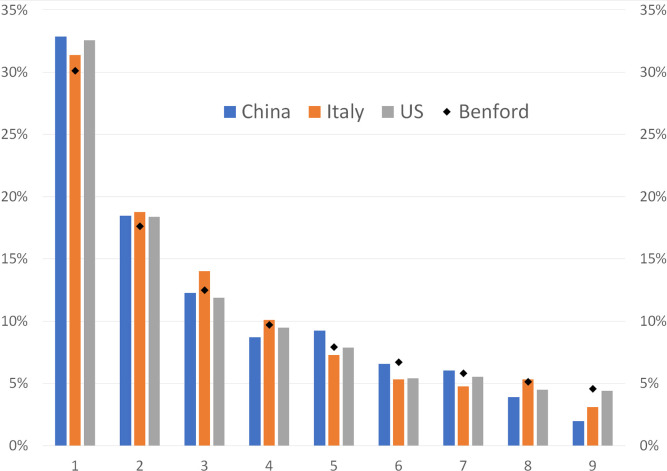
@ShahidNShah


Trust in the reported data of contagious diseases in real-time is important for policy makers. Media and politicians have cast doubt on Chinese reported data on COVID-19 cases. We find Chinese confirmed infections match the distribution expected in Benford’s Law and are similar to that seen in the U.S. and Italy. We identify a more likely candidate for problems in the policy-making process: Poor multilateral data sharing on testing and sampling.
Contrary to popular speculation, we find no evidence that the Chinese massaged their COVID-19 statistics. We use a statistical fraud detection technique, Benford’s (1938) Law, to assess the veracity of the statistics. This empirical finding is important because China was affected first. Policies to combat the global pandemic are informed by its response. Skepticism about the Chinese data may result – and may indeed already have resulted – in poor policy choices.
Continue reading at ncbi.nlm.nih.gov
Why has medical innovation brought cost-increasing enhancements to quality, rather than cost-reducing advances in productivity? The column uses a new dataset drawn from patents for prosthetic devices …
Connecting innovation decision makers to authoritative information, institutions, people and insights.
Medigy accurately delivers healthcare and technology information, news and insight from around the world.
Medigy surfaces the world's best crowdsourced health tech offerings with social interactions and peer reviews.
© 2025 Netspective Foundation, Inc. All Rights Reserved.
Built on Apr 25, 2025 at 12:44pm